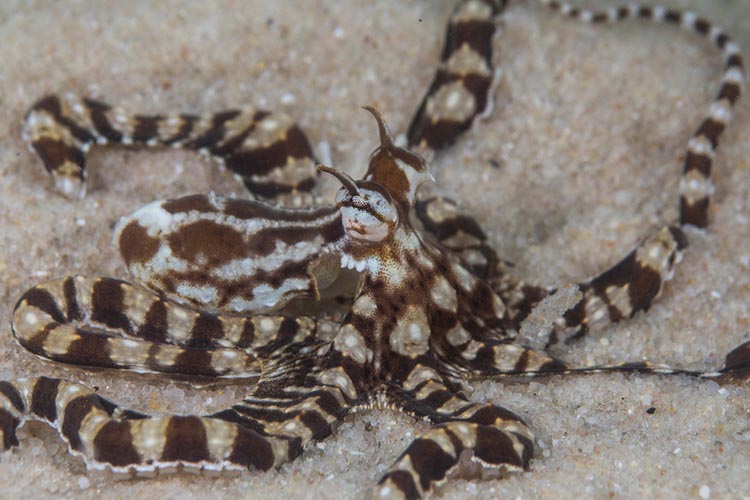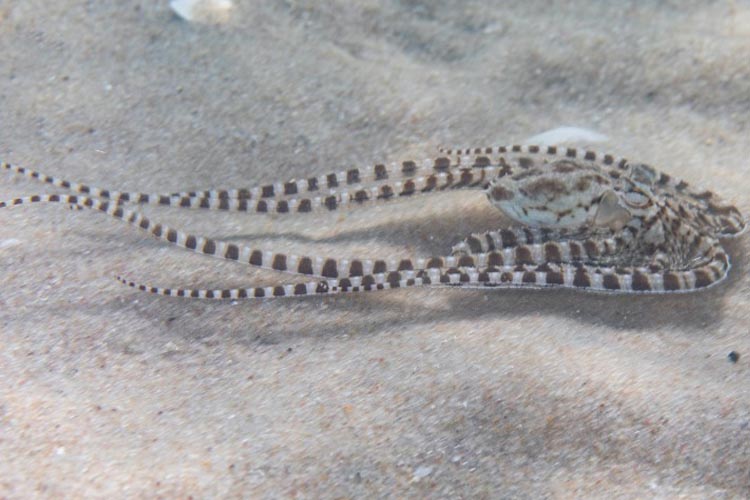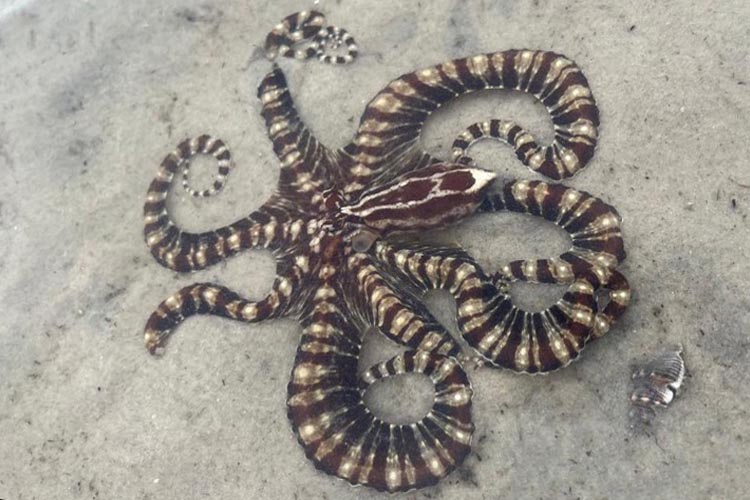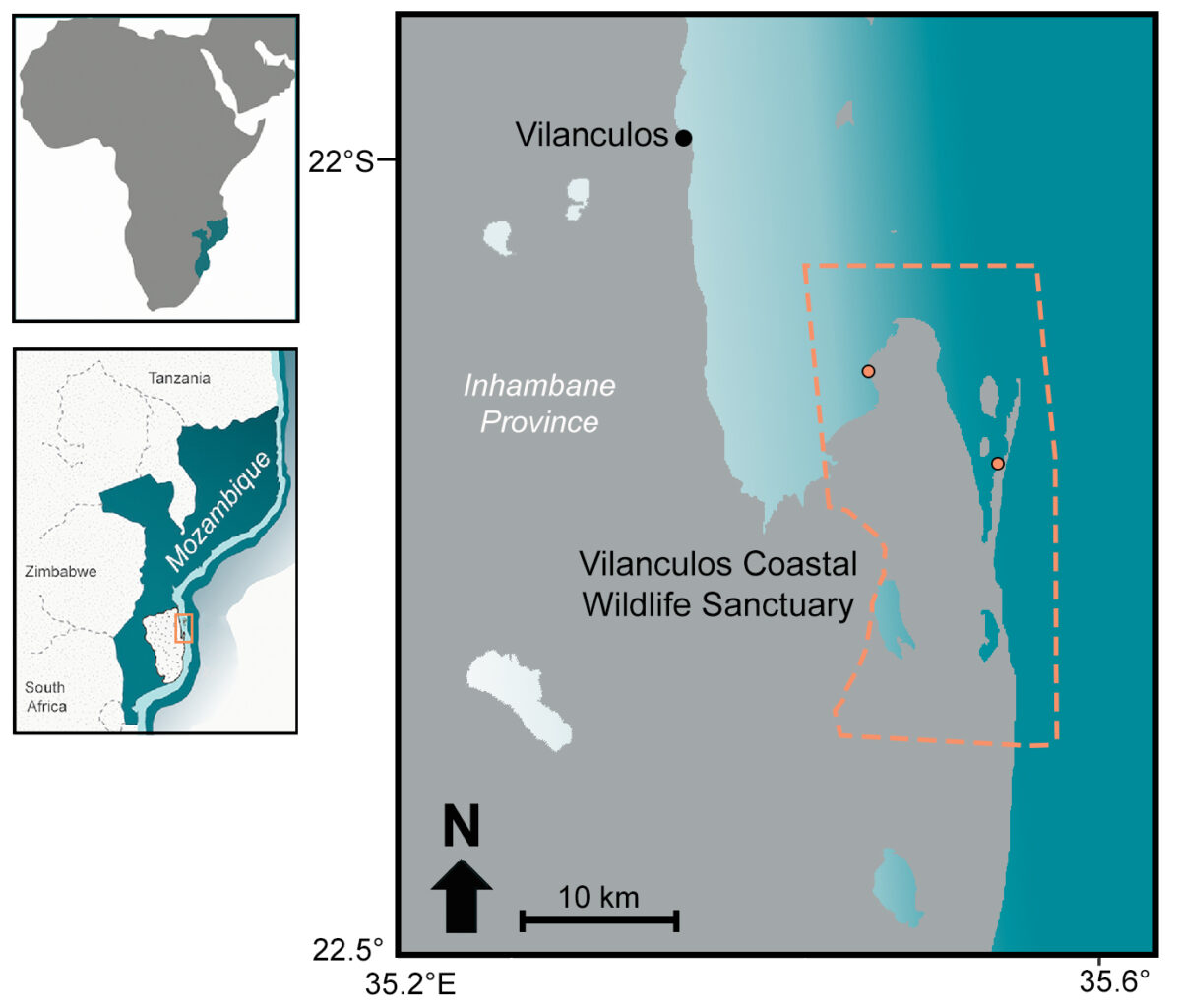
Marine Megafauna Foundation scientists’ surprise discovery of the shape-shifting mimic octopus in Mozambique
In a remarkable testament to the hidden wonders of the oceans, researchers at the Marine Megafauna Foundation, in collaboration with the Vilanculos Coastal Wildlife Sanctuary, have made an extraordinary discovery off the coast of Mozambique – the elusive and fascinating mimic octopus.
First described in the 1980s, the mimic octopus (Thaumoctopus mimicus) has captivated underwater photographers and marine biologists alike, with its remarkable ability to imitate other marine life. The species most commonly associated with the Asia-Pacific region, particularly Indonesia, although it is often found in the Philippines and along the northern Great Barrier Reef.
Mimic octopus can also be found in the Red Sea and Gulf of Oman, however, this is the first time the species has been spotted in African waters (beyond the Red Sea); an extension of its range of approximately 4700 kilometres.
Octopuses are well-known for their ability to blend into their surroundings, but the mimic octopus takes its mastery of disguise to another level: it can transform its shape, colour, and behaviour to match that of a range of other marine animals such as lionfish, flatfish, sea snakes, and starfish – among others. The behaviour is a survival technique that helps the octopus to both confuse its predators, and stalk and catch its unsuspecting prey.


‘These sightings represent a significant expansion in this species’ known range,’ says Andrea Marshall, MMF co-founder and lead author of a recently published study describing the sighting. ‘Seeing one in Mozambique was startling; it was instantly recognizable, yet its presence here was completely unexpected.’
The octopuses were sighted exhibiting their unique mimicry behaviour in the Vilanculos Coastal Wildlife Sanctuary, situated along the coastline of Mozabique’s Inhambane province.
‘Witnessing the mimic octopus within our Sanctuary was incredible, said sanctuary manager, Taryn Gilroy. ‘Its previously undocumented presence off eastern Africa underscores the richness and diversity of our marine life.’

The researchers at Marine Megafauna Foundation call the discovery of the mimic octopus in new waters ‘a call to action,’ which ‘serves as a reminder of the ocean’s vast and unexplored mysteries, and the need for continued research and conservation.’
‘Discovering such extraordinary creatures in new habitats reminds us of the vast unknowns in marine environments, particularly in Africa,’ said Marshall. ‘We hope this finding will inspire awe and a renewed commitment to ocean conservation.’
Related stories
- Andrea Marshall in intensive care after stroke
- How the Marine Megafauna Foundation makes sustainability sustainable
- Prince Harry visits MMF project in Bazaruto, Mozambique
- MMF confirms world-first international reef manta migration
- Octopuses fire blasts of debris at sex pests
The full report, ‘First photographic records of mimic octopus Thaumoctopus mimicus (Cephalopoda: Octopodidia) from southern Mozambique, Southwest Indian Ocean’ is published in the Journal of the Marine Biological Association


